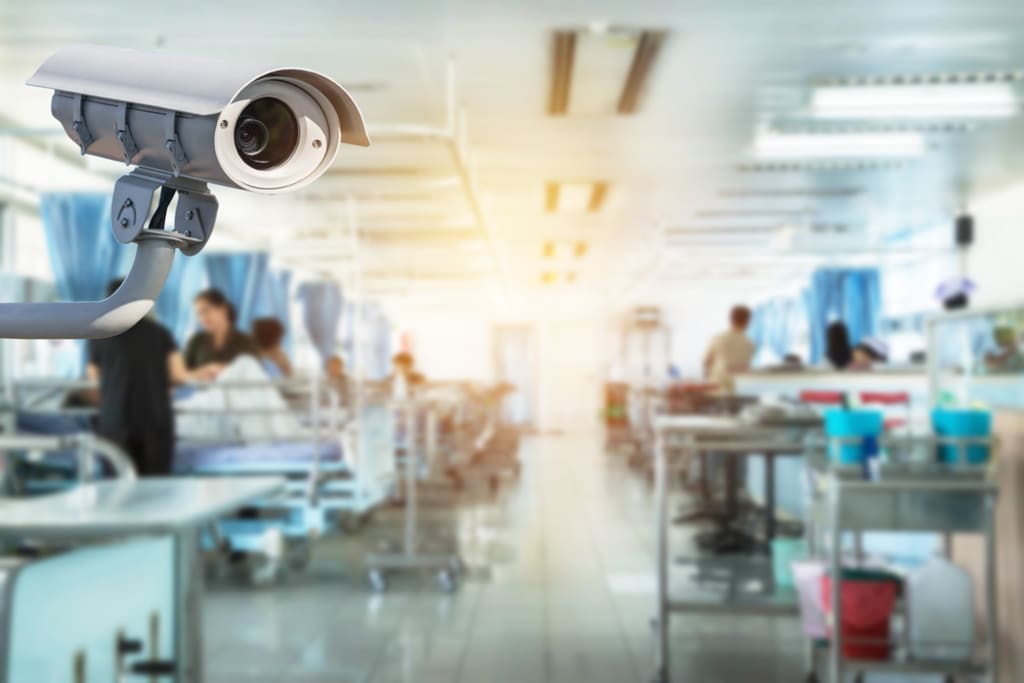5 Exceptional Services Rendered By Hospital Security
Hospital security provides protection and peace of mind to all patients and staff.

When most people think of hospital security, the first thing that springs to mind is a police officer guarding a hospital room of a criminal or witness who has been injured. Usually, the security guard at the entrance or reception area doesn’t spring to mind, yet they are as crucial to any hospital as nurses and doctors. A hospital’s security stations and security guards are critical components. They safeguard hospitals and secure patients and employees allowing them to concentrate on their jobs rather than potential security threats. Here are some services that security guards provide in most hospitals, emergency rooms, and health clinics.
Patrolling and Monitoring the Premises
Threats like theft and vandalism can quickly enter hospitals. The atmosphere in the hospital has a significant effect on the patient’s well-being. Security personnel is trained to spot potential threats, vandals, and other questionable activity. Guards for the healthcare industry are trained to patrol the area and look for dangers. They can inform the staff of a probable fire breakout. Security may also assist in removing people from the site.
They also protect vulnerable access locations such as emergency rooms, intensive care units, OPD (Outpatient Department), and behavioural health departments. The hospital security keeps an eye on the ins and outs to avoid surprises.
For example, an intruder tries to enter certain places without permission. These guards can manage the state with care. They will first investigate the individual and acquire information concerning the intrusion. They will turn over the subject to local police for further action. Such action will prevent the danger and commotion that could ruin the serene vibe of the area. These hospital security guards can operate CCTV cameras, but they will also inspect visitors manually to add security. As a result, the hospital’s exit and entryways will always be secure.
Preventing Violence and Theft
The reasons for violence in healthcare facilities vary depending on the pattern and type of scenario. Hundreds of individuals are working to meet the requirements of patients. Guards can put a stop to undesirable behaviours like violence and harassment. It has the potential to deter people from engaging in inappropriate behaviour. Healthcare security guards are also instructed to document incidents so law enforcement officers can respond quickly and responsibly. If there is any risk of damage to the hospital property or equipment, the guard immediately calls the police. The primary responsibility of guards is to prevent losses and damages from trespassers while ensuring environmental safety.
Security guards patrolling sites such as newborn nurseries and paediatric units reduce the possibility of child kidnapping. Guards check visitors’ identity cards and inquire about their relationship with the youngster before allowing them to enter these sites. They do so to decrease the possibility of unauthorised entry. Keeping a strict eye out for strange activity day and night can help reduce crime.
Managing Patients and Family
In hospitals, people cannot control their emotions, sentiments, and rage. People become emotionally passionate when someone dies in their family, which can rapidly lead to a chaotic and uncomfortable situation. A stressful hospital environment can significantly increase the stress level of patients and their families. Hospitals are busy environments for doctors who need to treat patients and act quickly. Any unwarranted interferences might cause problems for patients and their families. Hospital security guards are trained to deal with angry and unruly patients. They understand how to de-escalate a problem by speaking gently while not validating the other person’s feelings. When de-escalation tactics fail, security officers can safely secure and evacuate the furious person from the building. The presence of security guards also inhibits irate individuals from making threats.
Some people express their wrath by blaming doctors for poor medical care. Short-tempered individuals frequently seek to attack or damage doctors, nurses, and visitors. And it becomes difficult for the employees to deal with the situation quickly. Hiring security guards services can help institutions reduce verbal abuse and physical violence. Before reaching a decision, these armed carefully listen to both parties’ concerns.
Preventing Unauthorized Access
Not all hospital employees are permitted to enter critical hospital areas. Certain employees are not allowed to enter those places. For example, patient lab samples and drug storage rooms, which are more sensitive than other departments, must be closely monitored. A healthcare facility has a large number of patients. They have family members and others who have come to greet them. There is always the possibility of someone unknown entering the building and claiming to be a relative of the patient. It is critical to ensure who enters and when. Hospital security uses locks to prevent illegal entry and evaluates hospital control and security systems. Healthcare security can use video surveillance to monitor those who enter and exit the hospital. It can deter intruders who could endanger patients and hospital personnel.
Implementing physical access control with proper round-the-clock monitoring of critical locations would prevent undesirable persons from entering, detect dangers and quickly mitigate them, and protect lives and confidential patient information.
Responding Emergencies
Many times, mass injuries occur as a result of terrorist strikes or significant incidents. In such circumstances, hospitals are overflowing with victims and their families. It will be much easier to deal with the mob if you have reputable security guard services.
When taking emergency measures, hospitals should define the sort of access and moment that will be permitted for staff, patients, visitors, emergency volunteers, vendors, and other individuals. Incorporating security’s function into the emergency operations plan is also critical. Including security in all emergency, preparations can help the hospital provide a better overall response.
Hospital Security can be involved in a variety of ways. For example, security can handle car and pedestrian movements in an emergency. Vehicles might include those belonging to emergency responders. Security can also assist in directing visitors to the appropriate areas of the healthcare facility.





Comments
There are no comments for this story
Be the first to respond and start the conversation.